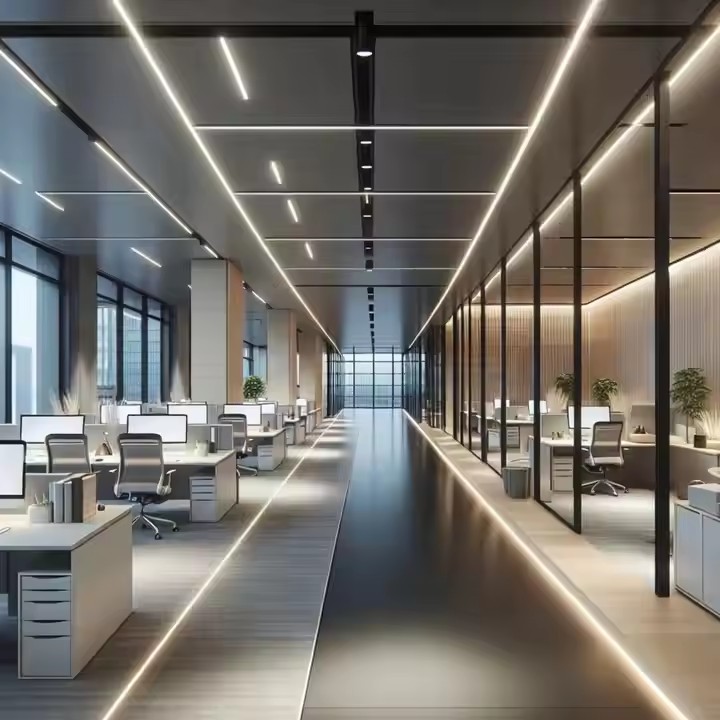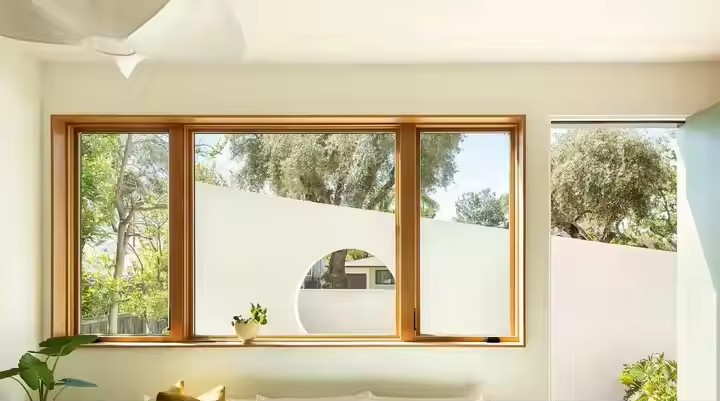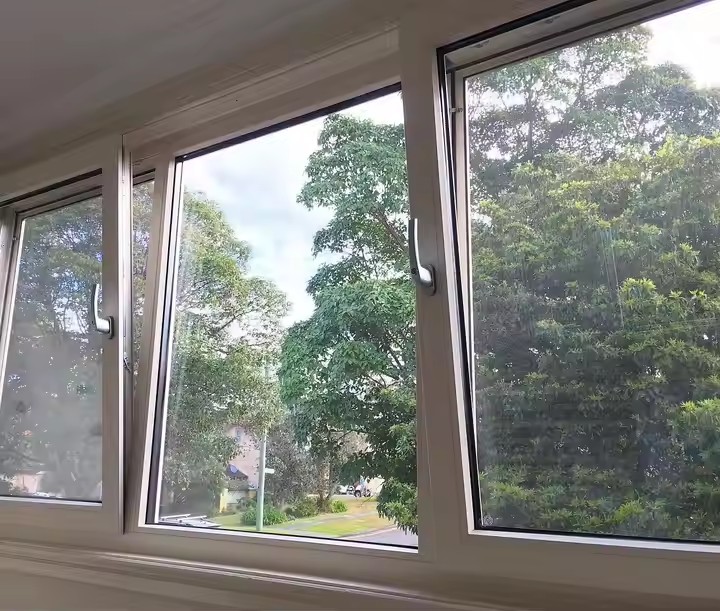- Maximized Space Efficiency — Perfectly Suited for Compact Chinese Living Environments
Urban housing in China is often characterized by limited space, making space utilization a top design priority. Whether in small apartments in older neighborhoods, high-rise balconies, or commercial display windows, every square meter counts — and the structure of sliding windows precisely meets this need.
No space taken up by window opening:
When opened, sliding windows move horizontally along a track rather than swinging inwards or outwards. This prevents issues like collisions with outdoor railings, air-conditioning units, or neighboring windows — particularly important in high-rise buildings or closely spaced residential blocks. Likewise, they don’t occupy any indoor space, so there’s no need to leave wall or floor clearance for window movement. This makes them ideal for balconies with washing machines or living rooms where furniture is placed near the windows.
For example, in a small kitchen, a sliding window won’t block the countertop when opened, ensuring a smooth and efficient workflow.

Flexible adaptation to irregular spaces:
Sliding windows can be customized for non-standard areas common in Chinese homes — such as narrow balconies or bay windows — through multi-panel designs (e.g., three panels with two tracks or four panels with three tracks).
On a balcony, for instance, a three-panel, two-track window allows both side panels to slide toward the center, achieving up to 50% opening. This ensures effective ventilation without limiting the balcony’s drying or leisure functions — a flexibility that conventional casement windows cannot match.
- Convenient Operation — Suitable for All Age Groups
Sliding windows are simple to use, mechanically stable, and require minimal maintenance — making them user-friendly for seniors, children, and people with limited mobility alike.
Low effort, high safety:
To open a sliding window, you simply push the sash — there’s no need to overcome hinge resistance or worry about the sash swinging out dangerously. (Some outward-opening windows even require limiters to prevent fall hazards in high-rise settings.)
For elderly users, the light horizontal motion requires no lifting or force. For children, the design eliminates the risk of finger pinching or climbing accidents, and with an additional limiter lock, the opening width can be controlled to further enhance safety.
Easy maintenance, low failure rate:
The main components — track and rollers — have a simple, durable structure without complex hinges that can rust or jam. Regular cleaning of the tracks and light lubrication are enough to keep them running smoothly.
In contrast, outward-opening window hinges are more exposed to rain and dust, making them prone to corrosion and higher maintenance costs.
Modern Chinese sliding windows commonly use nylon or stainless-steel rollers, which can bear 50–80 kg and last over 10 years under normal use — perfectly aligning with Chinese households’ need for long-term, low-maintenance living.
- Upgraded Sealing and Sound Insulation — Designed for Complex Living Environments
As Chinese consumers increasingly value comfort and performance, sliding windows have evolved from basic open-close structures to high-performance systems capable of handling diverse environmental challenges in terms of sealing, soundproofing, and waterproofing.
Multi-layer sealing for diverse climates:
Traditional sliding windows were once criticized for poor airtightness, but modern designs now use triple-seal systems — rubber seals between sash and frame, brush seals along the bottom track, and corner seals at the joints — effectively blocking dust and rainwater.
In southern regions with frequent rainfall, the combination of drainage holes and sealing strips prevents backflow of water. In northern cold climates, additional thermal breaks and double-glazed insulating glass improve heat retention, minimizing winter energy loss — adapting well to China’s north-south climate variations.

Optimized sound insulation for urban noise:
Chinese city dwellers often face noise from traffic and neighbors. Sliding windows with insulated double-glazing and tight seals can reduce sound transmission significantly.
For example, a standard 5+12A+5 double-glazed unit can achieve over 30 dB of noise reduction — lowering outdoor noise (around 60–70 dB on main roads) to a comfortable indoor range (30–40 dB).
High-end models with laminated insulating glass provide even better acoustic performance, making them ideal for homes near busy streets or schools.
- Superior Daylighting and View — Enhancing Spatial Transparency
For Chinese families, good lighting is essential — living rooms, bedrooms, and balconies all benefit from maximum natural light. Sliding windows excel at enhancing brightness and openness.
Larger openings for more light:
Sliding windows can open halfway or even wider (up to 70% with multi-track designs), compared with about 50% for traditional casement windows.
For instance, a floor-to-ceiling living room sliding window with four panels on three tracks can slide both side sashes to the center, allowing broad sunlight to flood the room — reducing the need for daytime lighting, saving energy, and creating a brighter, more expansive atmosphere.

